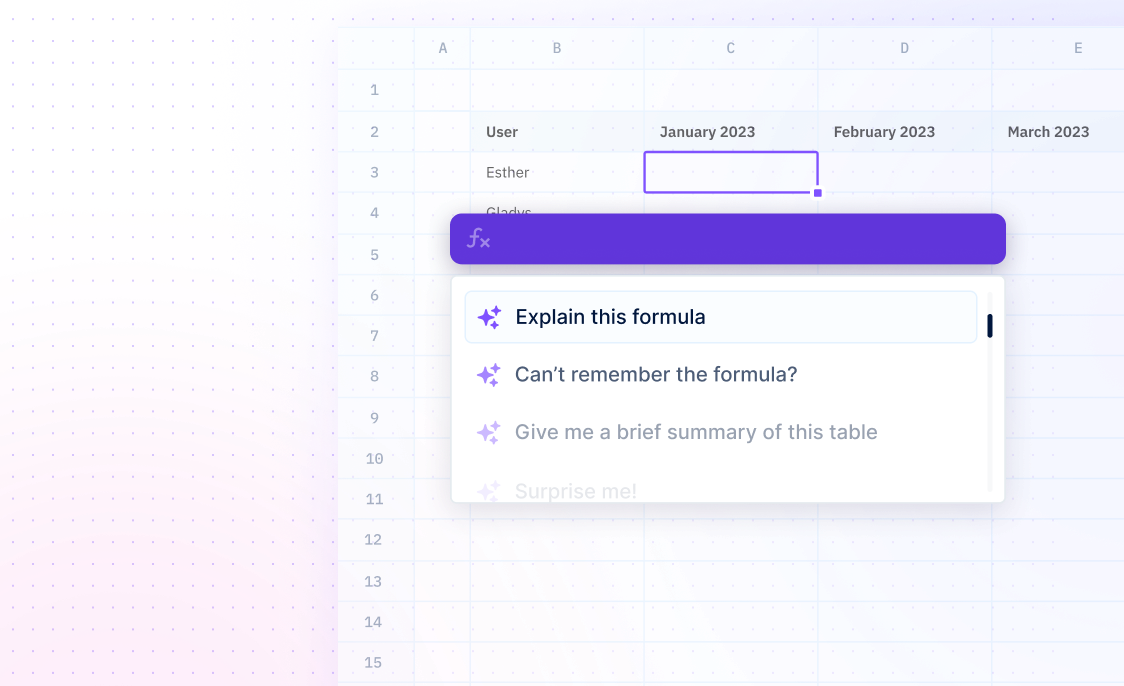
ENCODEURL
Formulas / ENCODEURLEncode a text string into a URL-safe format.
ENCODEURL(text)
- text - a string to be URL encoded
Examples
=ENCODEURL("http://contoso.sharepoint.com/Finance/Profit and Loss Statement.xlsx")The ENCODEURL function can be used to convert a URL into a URL-encoded string. This is useful for sharing and accessing files on a Microsoft SharePoint server. For example, this formula will return a URL-encoded string that points to a particular Sourcetable file on the SharePoint server.
=ENCODEURL("http://contoso.sharepoint.com/Finance/Profit and Loss Statement.xlsx?year=2020")The ENCODEURL function can also be used to convert URLs that include query parameters. For example, this formula will return a URL-encoded string that points to a particular Sourcetable file on the SharePoint server and includes the query parameter "year=2020".
=ENCODEURL("https://www.google.com/drive/Finance/Profit and Loss Statement.xlsx")The ENCODEURL function is also useful for sharing files stored in a cloud storage service and will return a URL-encoded string that points to a particular Sourcetable file stored in Google Drive.
Summary
The ENCODEURL function allows users to protect URLs from being copied and pasted by encoding the URL string into a shorter alphanumeric value.
- The ENCODEURL function takes a US-ASCII string and returns a URL-encoded version of it.
- The ENCODEURL function only uses US-ASCII characters for encoding.
Frequently Asked Questions
What is the ENCODEURL function?
What is the syntax for the function?
What type of argument does the function take?
What does the string argument mean?
What are some common uses for the function?
- The ENCODEURL function can be used to encode characters in a URL so that it looks presentable and professional.
- It can also be used to encode special characters in a URL.
- The ENCODEURL function can also be used to encode text that needs to be passed as a parameter in a URL.

